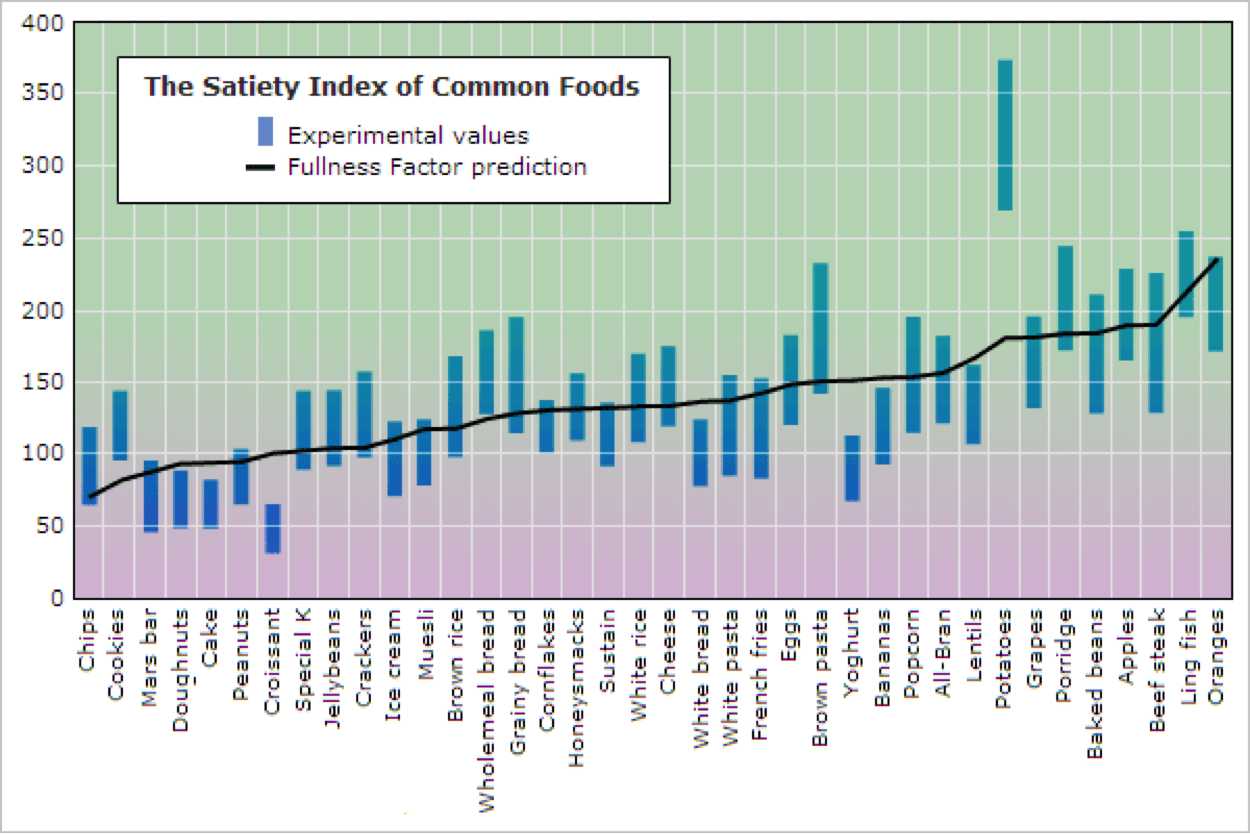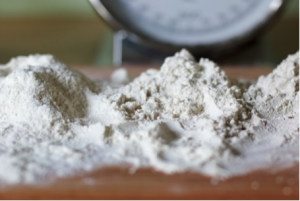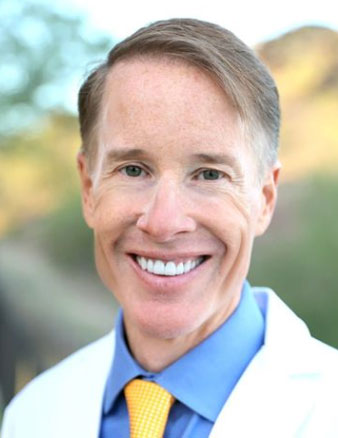When it comes to calories, there are some fun facts about calories that relate to some weird facts about weight loss. I want to help you understand both and the role they can play in your health.
The concept of a calorie has become too emotionally loaded. You might even be feeling confused about some of the basic facts about calories. Are they essential or are they meaningless? Are they essential or are they completely meaningless?
Learning a bit more about calories is all about being able to decipher the fact from fiction. This way, we can better educate ourselves and make the right choices for our bodies. So, without further ado, let’s break down some of my favorite and interesting facts about calories…
1. FACT – Calories Do Not Explain Weight Gain
Somewhere around the 1980’s, the rates of obesity simply skyrocketed (1). Many argued that this was because of our increased consumption of carbohydrates and sugars.
By many sources, our calorie intake also went up by about 200 – 300 calories around that same time period (2). The problem is that the calories model actually does not explain this properly.
Experts have looked at:
- Questionnaires of food intake
- Food production processes
- Food purchased per capita (minus food loss)
Since 1978, the research has shown that our caloric intake has increased by about 200 calories, consistently, year-over-year.
Calories might explain weight gain, but not in a linear fashion. This is because when you become “bigger,” your body has to work harder and you burn more calories.
Key Insight: The year-over-year growth in our consumption of calories perfectly describes where we are at right now. Our caloric intake has increased, and we have become bigger. Do we really know what that means, though?
2. FACT – Calories Do Not Explain The Obesity Crisis
When we talk about this fact, I think it is so important that we begin differentiating between the idea of “describing” and “explaining.”
I think that right now we are doing a great job of describing that we are consuming a large number of calories (in proportion to weight gain), but I would argue that the description does not serve as an explanation for the weight gain.
Let’s go with a quick and easy example. If you were to look at the results of a football game, you can easily tell that one team won based on how many points they scored.
You could easily point to it and say, “I know that this team won because they scored 7 more points.” That is a great way to describe something, and it is entirely correct – but does it explain how the team won? Definitely not!
Key Insight: If the assumption is that calories are exactly the problem, and the only problem, then eliminating calories would be the natural solution. That’s good logic, but it is clearly not correct.
The idea that calories explain the current obesity crisis suffers from the fact that is looks to calories as the singular explanation, and therefore the singular solution.
There are so many more factors, that it is not fair and it is not correct to identify calories as the only problem. It might serve as a description, but it does not explain away the problem or strategize an effective solution.
3. FACT – Carbohydrate Calories and Fat Calories Do Not Affect Weight Differently
This is something that we are hearing a lot about nowadays. The argument is that carbs cause insulin production, insulin causes fat storage and that you therefore need carbs in order to gain weight.
It also relies on the idea that we have currently consumed more carbs during this point in history, and we have gained weight as a result.
That last part is important to focus on. It’s true, we have consumed more food during this point in history than ever before.
We have also consumed more calories. That also means that we have added processed carbs on top of our diet. But our fat intake has remained relatively the same. We have never really gone “low-fat.”
In the ’80s, I argued that extremely low-fat diets were a really bad idea. We need fats, because they are essential. Now carbs are being made out to be the villains, the same way fat was way back then.
Key Insight: Carbs are not the issue, and it is not the source of calories acting differently in our bodies. It’s actually not an issue of high this and low that, because the studies do not prove that either way.
4. FACT – Protein Calories Help Weight Loss
We have talked before about how protein can be really important for weight loss (3). We have also learned that we do not simply “fall into” the optimal amounts of protein for weight loss all that easily.
If we are getting 25 – 35% of calories from protein, that is where we are going to see a pretty big difference in our body composition.
Protein can provide the following:
- Curbing our desire for more food
- Increasing muscle mass
- Helping with our metabolic rates
The thing about a high-protein diet is that it takes planning. It is not like carbs and fats where you can easily cut out one and stock up on the other.
Protein foods are not as dense in calories, so achieving that 25 – 35% sweet spot is going to require a lot of work and a lot of planning, but it is certainly achievable.
5. FACT – Food Quality Does Not Affect Weight More Than Calories
I have seen this happen so many times. People are eating higher quality foods, and they are feeling virtuous about their choices, but they are simply not getting anywhere with their weight loss.
It has to be a frustrating feeling to be making all of these good choices, and still not seeing progress on the scale.
This reminds me of a professor in the news who pioneered his “Twinkie Diet,” which was essentially a diet made up of twinkies and other sweet treats (4).
The unique aspect of this was that as he was eating these terrible foods, he was meeting an exact caloric target. He created a deficit from what his needs were, and simply stocked up on these snacks to meet that new target.
The result? The professor dropped the weight he wanted to drop and started feeling better. His point was that the amount of calories you have is all that matters, regardless of the food’s quality. If you hit those targets, that is what counts.

Key Insight: Of course, food quality matters in terms of long-term health, but so do calories. Our calories count toward our body weight, and that can be such a large predictor of disease. It is important that we respect the relationship between responsible healthy food choices and the number of calories we are putting into our bodies.
6. FACT – Ketogenic Diets Cause The Same Amount Of Weight Loss When Calories Are Controlled
An extension of the low carb trend, ketogenic diets are starting to become super popular for those looking for dietary solutions in their lives.
The fact here is that when calories are controlled effectively, ketogenic diets cause the same amount of weight loss.
Some have argued that this diet increases metabolic rates, or that when your body is in a state of ketosis it does not matter what else you are consuming because your body is burning it anyways.
In reality, while you are burning fat for fuel, you are still consuming fat – so the only fat you are burning is the same fat you are consuming (5). Kind of a frustrating paradox!
Key Insight: In ketosis, or on a high-fat diet, you are burning more fat. The problem is that you are not burning your fat – the fat that you are carrying on your body that you might be looking to lose. You are only ever burning the fat you just ate.
7. FACT – Exercise Does Not Help By Burning Calories
The good thing about exercising is that it helps our bodies take up calories better, with muscle mass, but the math itself is not actually so helpful. Most graphs and machines actually really overestimate the number of calories that we are burning. This means that after you exercise, you might feel like you need to load up on calories. Unfortunately, this might not be helping you.
I love to exercise, and I can tell you right now how important it is for your body. It is just important that we do not look at exercise and calorie burning side-by-side. Instead we look at exercise as a way for us to better manage the calories we are bringing in.
Overall, exercise is wonderful, it helps:
- Release endorphins
- Makes our muscles better at burning fuel over visceral fat
- Provides us with deeper sleep
Key Insight: While exercise is still super important, it is just as important that we do not get confused when it comes to the number of calories we think we are burning, and how many we are actually burning when we break a sweat.
8. FACT – Not All Calories Are Equally Filling
The wrinkle with food calories is that sometimes they do not fill you up as much as others do.
In a perfect environment, every calorie is the exact same relative to our appetite, but we know that we cannot look at it that way once food comes into the equation.
The exception to this is liquid calories, and it explains why there has been so much recent public policy with regards to sodas and other sugary beverages. There’s no food off-set, which means that your appetite remains relatively the same. It is different if you have food, and you do not feel as compelled to eat afterward. Liquid calories do not really have that roadblock effect on our appetites.

There have been some really good studies done on satiety (6), and the idea of the “fullness factor.” This is important because it helped track people after large meals, it would look at:
- How soon after they ate that people got hungry
- Just how hungry they were afterwards
Key Insight: Potatoes serve as one of the best foods when it comes to fullness, and feeling full to the point where your next meal is not as indulgent.


9. FACT – You Cannot Simply Ignore Calories If You Eat Healthy Foods
This one is akin to the “Twinkie Diet” concept that I introduced earlier. It is based on the idea that you can ignore calories if you are eating healthy foods.
While you do want to have a sense for healthy foods, there are also “good foods” out there that can push you over the edge in terms of your body weight.
Some of the common pitfalls are:
- Nuts – Snacking on nuts can be dangerous. Nuts are so good for your health, and I openly encourage you to eat them, but it is so easy to go beyond your food targets just snacking on nuts.
- Cooking Oil – Olive oil is a good food, but you do want to consider quantities when you are cooking with it.
- Flour Products – Flour is fast absorbed and super dense in calories. It hits your body fast and hard, and your body is not as able to handle it when that does occur.
Make sure you keep these in mind when you are snacking on supposedly “good foods.” While they might be good in moderation, we definitely do not want to go overboard.
Understanding The Calorie Myth
There are some really important points that I want you to take with you when it comes to understanding the role of calories in your diet. They are:
- Calories do matter
- Food quality does matter
- Food choices matter
- Protein matters
When you have an understanding of all these principles, your body is definitely going to benefit. Speaking of your body, how much do you know about your thyroid? Have you been trying to lose weight and have you noticed other things about your health that you might want to know more about? Try taking the thyroid quiz today, and learn a whole lot more about the state of your body and how you can give your body what it needs.

1. Schedule a Thyroid Second Opinion with me, Dr. C, Click Here for Details
2. Download and use my Favorite Recipes Cookbook Here
3. Check out my podcast Medical Myths, Legends, and Fairytales Here
Dr. Alan Glen Christianson (Dr. C) is a Naturopathic Endocrinologist and the author of The NY Times bestselling Adrenal Reset Diet, The Metabolism Reset Diet and The Thyroid Reset Diet.
Dr. C’s gift for figuring out what really works has helped hundreds of thousands of people reverse thyroid disease, lose weight, diabetes, and regain energy. Learn more about the surprising story that started his quest.


